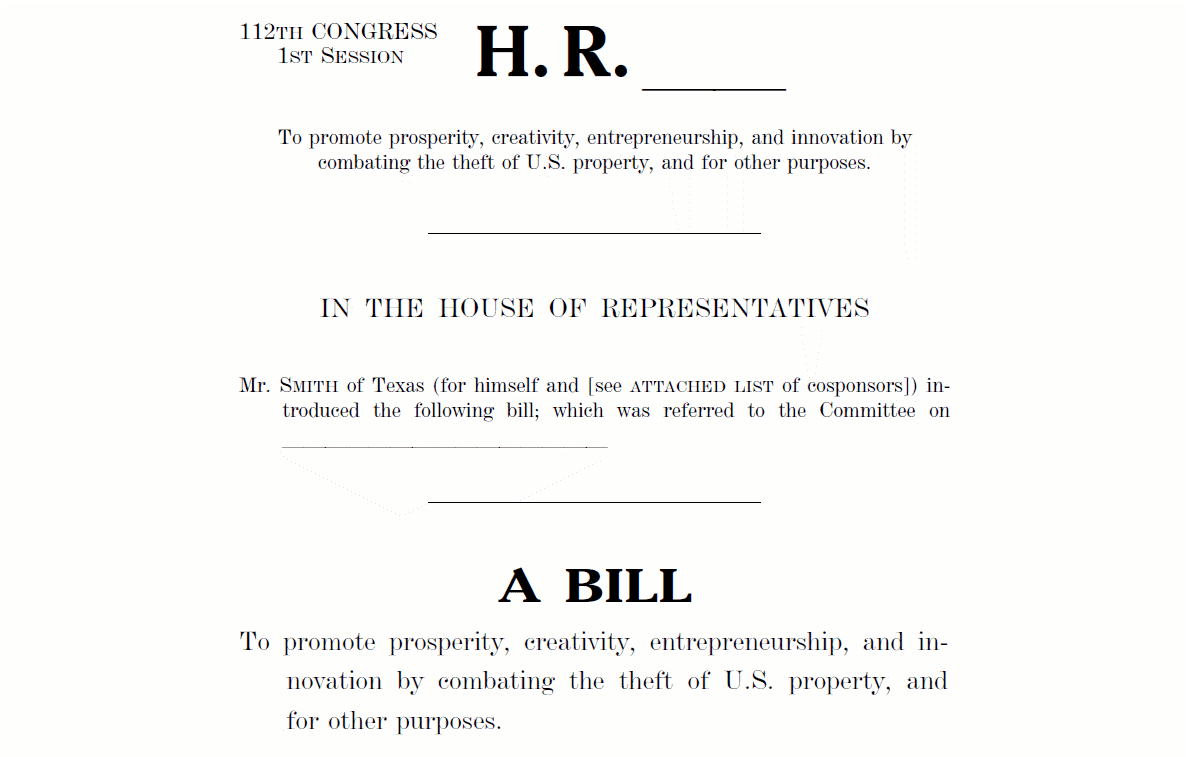 The House Judiciary Committee adjourned today for the holidays, which means the Stop Online Piracy Act (SOPA) will not come up for a vote in the House until January 2012 at the earliest. SOPA has lately been a focus of controversy and debate, with numerous Internet companies and civil-liberties groups raising censorship and other concerns.
The House Judiciary Committee adjourned today for the holidays, which means the Stop Online Piracy Act (SOPA) will not come up for a vote in the House until January 2012 at the earliest. SOPA has lately been a focus of controversy and debate, with numerous Internet companies and civil-liberties groups raising censorship and other concerns.
Earlier this week, the Library Copyright Alliance (LCA)—made up of the American Library Association, the Association of Research Libraries (ARL), and the Association of College & Research Libraries—released an open letter [PDF] to Sen. Ron Wyden (D-OR), Rep. Darrell Issa (R-CA), and Rep. Jason Chaffetz (R-UT), “welcoming [the] release” of a discussion draft bill the legislators have sponsored. Called the Online Protection and Enforcement of Digital Trade (OPEN) Act, the bill has been touted as a potential alternative to SOPA.
Though SOPA [PDF] is primarily aimed at combating copyright infringement by foreign websites, many observers have taken issue with the enforcement methods described in the bill, which could have far-reaching effects—including in the library world. (Yesterday, 83 Internet engineers and inventors wrote an open letter to Congress saying that SOPA and similar legislation “will create an environment of tremendous fear and uncertainty for technological innovation.”)
On November 8, Brandon Butler, ARL’s director of public policy initiatives, wrote another open letter on behalf of the LCA criticizing two provisions of SOPA’s Section 201. One of them, he wrote, could expand the definition of “willful” copyright infringement to potentially include cases where a person (or organization) believed in good faith that its infringing conduct was lawful; such “innocent” infringement carries much smaller potential for monetary penalties than willful infringement does. (“In cases of willful infringement, the court can increase the statutory damages to $150,000; in cases of innocent infringement, the court can reduce the statutory damages to $200,” Butler wrote.)
Another SOPA provision would allow felony instead of misdemeanor penalties for some unauthorized public performances of copyrighted works. The OPEN Act does not include these or similar provisions, which Butler told LJ was “certainly a factor” in LCA’s support of the draft bill.
“While we have concerns about several aspects of SOPA, the ‘willful’ streaming issue was something that very few people were talking about, and it was nice to see that the OPEN Act left that issue aside,” he said. He added that it was “certainly better” that the OPEN Act doesn’t involve “filtering or blocking websites.”
The OPEN Act’s sponsors have also embraced public comment on the act, with the office of Rep. Issa setting up a website, KeepTheWebOPEN.com, where visitors may take part in “collaborat[ing] to build a better bill” via an interactive interface. “We also like the process that the OPEN Act framers are following, which allows for wide public engagement at a very early stage in developing the legislation,” Butler said. “That’s an example we wished more legislators would follow!”


